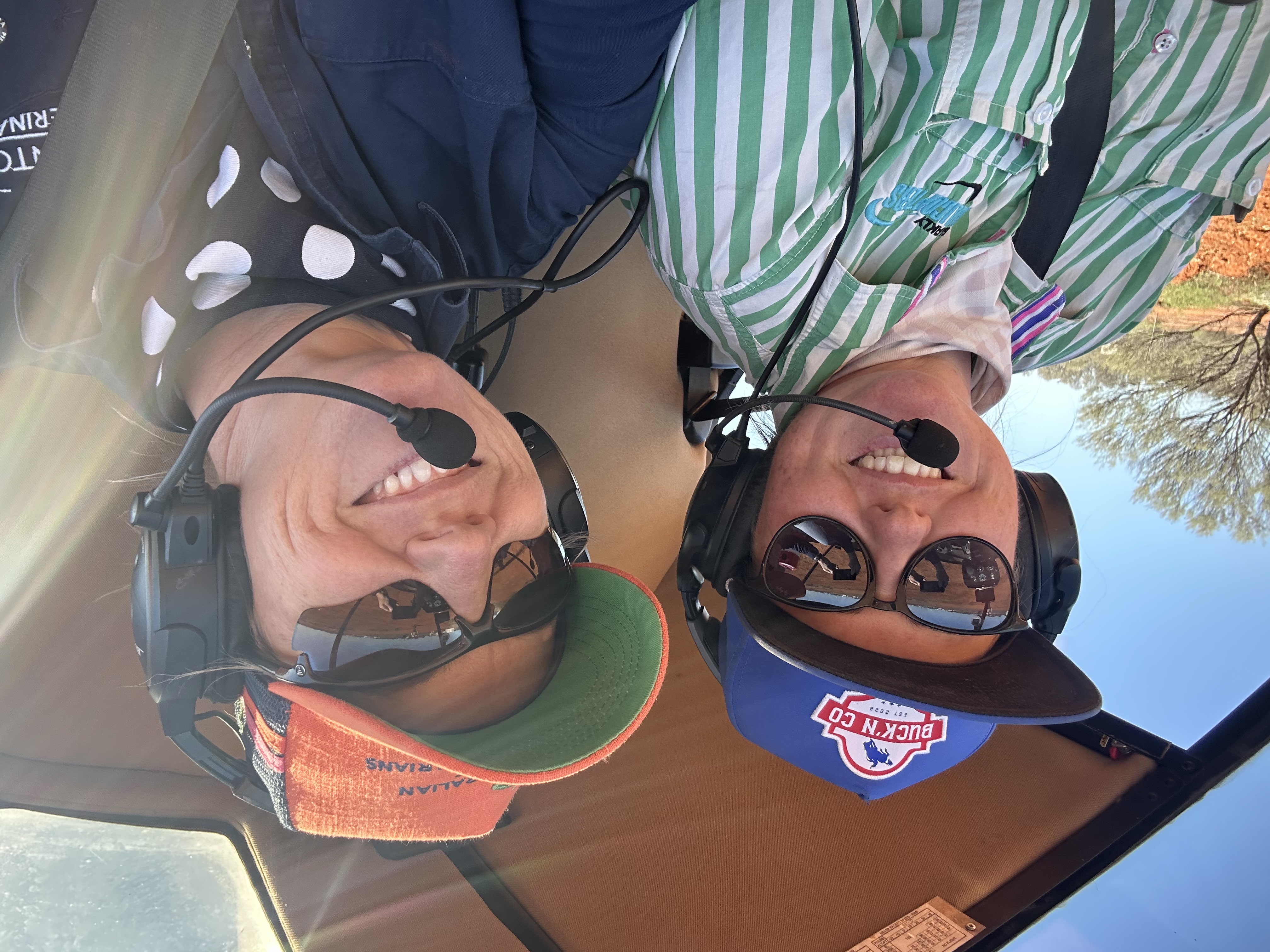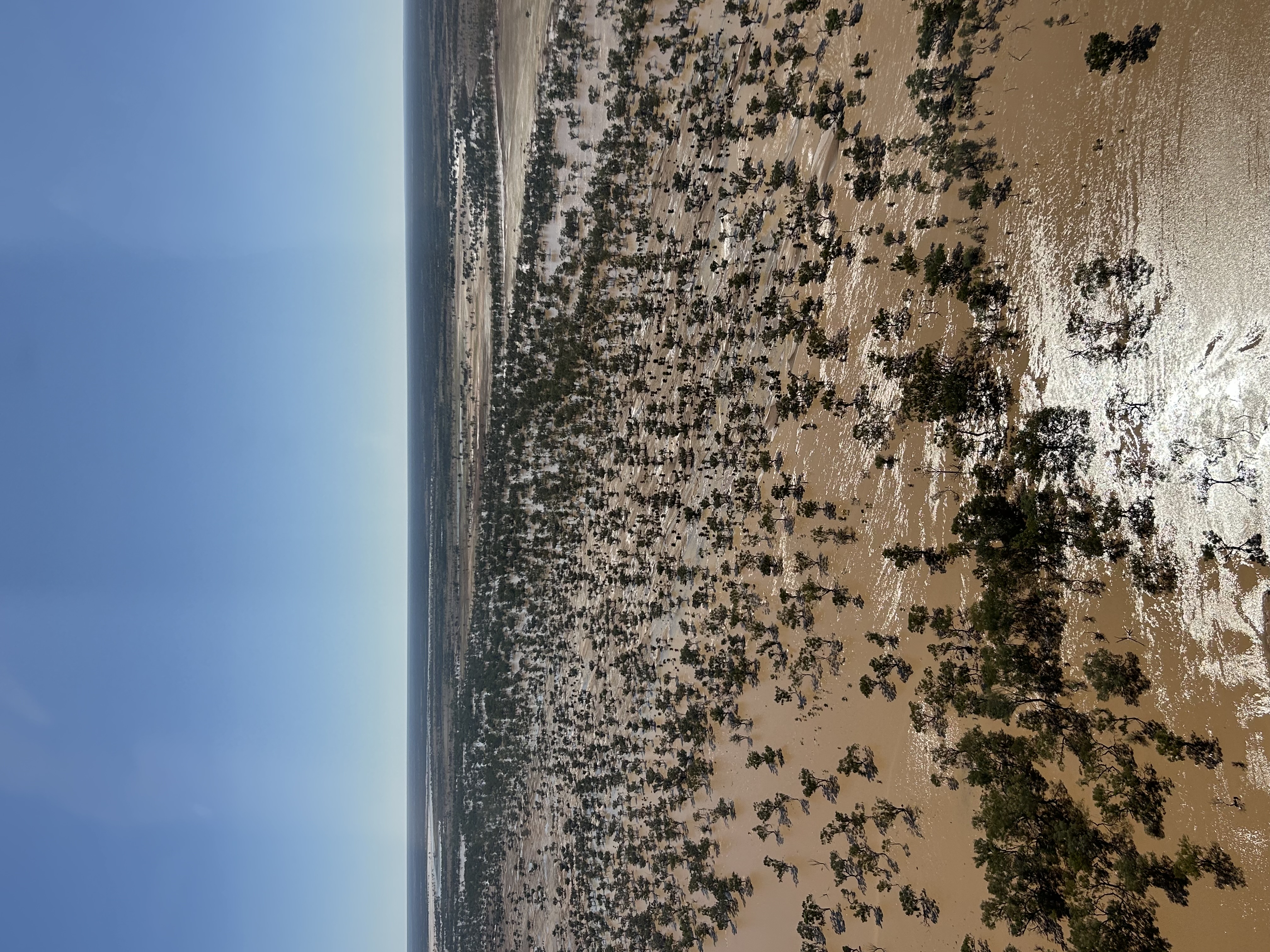World Mental Health Day: “Mental health in humanitarian emergencies”
09 Oct 2025From saving cattle during floods and treating koalas burnt in bushfires, to being the ones people turn to for expertise amid biosecurity threats, veterinarians are often on the frontline of humanitarian emergencies. Their work goes far beyond the clinic, placing them directly in high-stress, emotionally charged environments.
Studies from the World Health Organisation (WHO) show that almost all people affected by emergencies experience some form of psychological distress.
When Australian Cattle Veterinarian (ACV) President Dr Stacey Rae flew to Western Queensland to assist in rescue and recovery efforts following devastating flooding, she saw firsthand the loss of life, possessions, livestock and livelihoods. However, she said she was fortunate to be able to cope quite well with the emotional demands and stress of the situation.
“I used peer and team support,” she said. “Talking openly with others at the emergency response centre (pilots, SES workers and local government co-ordinators) who were experiencing the same events, and I also worked on finding meaning and purpose in the situation which gave me motivation and emotional balance. I focused on the positive impact of our work—saving animal lives and helping the graziers and flood victims.
Dr Stacey Rae during the Western Queeland floods, 2025
“Having the support of Special Interest Group National Manager Ian McDonald, the AVA staff, and then the connection with AVA colleagues through the establishment of the WhatsApp group and hotline was a great resource.”
Friday 10 October marks World Mental Health Day, and this year’s theme, “Mental health in humanitarian emergencies”, serves as a timely reminder of the pressures veterinarians face in emergency response roles. AVA Executive Officer for Wellness, Dr Rebecca Faris, said it’s crucial to recognise the emotional impact these experiences have on veterinarians and their teams.
“These situations are going to cause significant emotional distress for vets and their employees, as well as the clients they support. Many of them have often been personally impacted too,” Dr Faris said.
To support veterinarians and their families, the Australian Veterinary Association (AVA) provides an Employee Assistance Program (EAP), which is a free and confidential service available to all AVA members, their immediate family, and staff.
“We know that it’s normal for people to feel distress, sadness, or fear in these kinds of situations. What we don’t want is for those feelings to go untreated and develop into more serious, chronic problems. It’s important to remember that support is available anytime and at no cost,” Dr Faris added.
Members can access help through a range of resources including the Converge International website, telephone counselling service, the Converge App, webinars, podcasts, and Flourish magazine. These services are available 24/7—not just during emergencies.
Dr Faris emphasised that the EAP should also be seen as a preventative resource. “EAP isn’t just for those times of crisis, it’s also about preventing those smaller stresses from building into big problems,” she said.
“You can call them about things like job or career issues, workplace conflict, or career coaching. It’s also available for support with grief, loss, financial concerns, or even nutritional advice from dietitians. As vets, we all know prevention is better than cure, and that’s true for mental health as well”.
Image from the 2025 Queensland floods
Dr Rae said she’s grateful for the many skills that her veterinary career has given her, handling emergency situations well is one of them.
“There are a couple of key things that I do during emergencies that help me stay calm. I always focus on the task in front of me, not the outcome. I focus on what can be done right now….and I always try to communicate clearly, slowly and with some slight emotional detachment from the situation, which I think helps me maintain objectivity.
“Over time, I think there are a few things that have helped protect my mental health. Connecting with colleagues who have similar experiences and being able to debrief situations with them is very powerful, almost like a form of counselling at times. It’s difficult to achieve a work/life balance when you are a vet in a small rural community but exercising regularly and having a hobby outside of work has certainly been key for me. Last but not least is celebrating the wins. In such a high-stress profession, it’s easy to focus on the losses or challenging cases but I think its super important to reflect on successful outcomes, moments where an animal’s health improved, a team member developed a new skill, or even just the difference that we’ve made in a client’s life, can boost morale and emotional wellbeing.”


